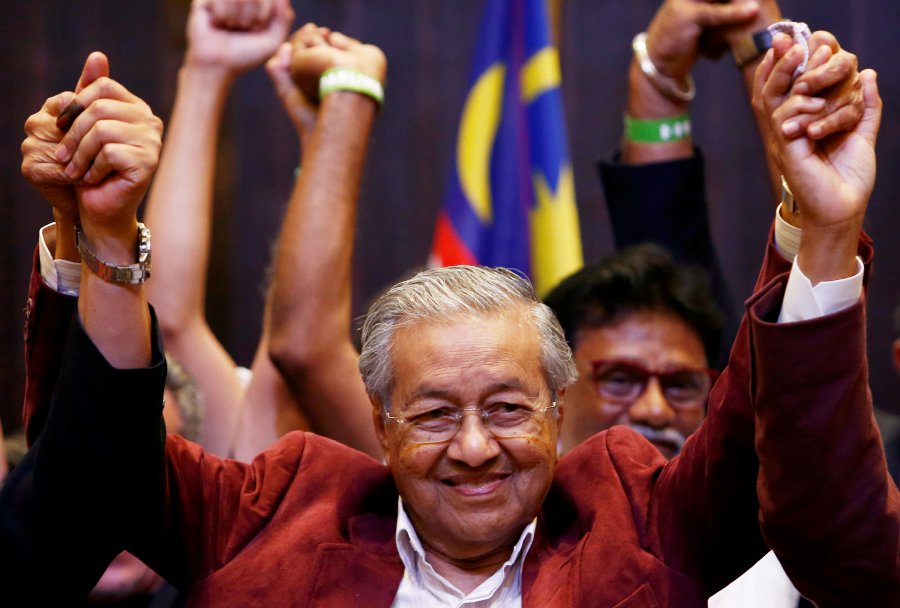I RECENTLY attended a dinner in London to celebrate Pakatan Harapan’s victory in the 14th General Election. The only reason I went was the promise of good, proper nasi lemak; I am, after all, a true Malaysian at heart.
The event was in honour of democracy in Malaysia – the platform on which the 1998 Reformasi movement stood.
Permatang Pauh MP Nurul Izzah Anwar began her speech at the event with these poignant words: “Even if we didn’t win, it would have been worth it because it was the right thing to do.”
She mentioned how the new Government was aware of the recent issues in Malaysia, specifically that of the 11-year-old Thai girl who was married off to a 41-year-old Malaysian man.
Fast forward two weeks and the recent developments surrounding the issue of child marriage have been conveniently overshadowed by rhetoric on religion, monarchy and sexuality.
In the so-called “New Malaysia”, we saw Numan Afifi Saadan, who was press officer to Youth and Sports Minister Syed Saddiq Abdul Rahman, being bullied out of his post, allegedly for his sexuality and being an LGBTQ activist.
We saw lawyer and Oxford alumna Fadiah Nadwa Fikri investigated under Section 4(1) of the Sedition Act and Section 233 of the Communications and Multimedia Act for an opinion piece she wrote on Datuk Seri Anwar Ibrahim and the monarchy.
She tweeted on Thursday that the police had called her in again for questioning under Section 9(1) of the Peaceful Assembly Act. This relates to the solidarity gathering that took place the day before in support of Fadiah.
As for protecting the 11-year-old girl, well, the irresponsible, polygamous man who calls himself her husband was fined RM1,800, not for the act of marrying an underage person, but for failing to obtain the syariah court’s consent.
The Thai authorities have since issued a marriage certificate.
This man has two other wives and several children. It has been alleged that he had failed to provide nafkah (maintenance) to his families.
The London celebration that I attended seemed premature. We have yet to achieve democracy, inclusivity and justice in Malaysia.
Many proponents of child marriage conveniently shout that such marriages and polygamy are allowed in Islam. I believe in my faith and through my readings, I know that Islam places emphasis on the importance of being responsible human beings, as we are God’s vicegerents on Earth.
Owning that responsibility should empower us in our everyday dealings. As for those of us chosen through a democratic process to positions of authority, we must seek within our very own principles, complemented by knowledge, to champion causes we care about and to fulfil our responsibilities by protecting and empowering others, especially children.
For me, the new hope that came with the election of a new government on May 9 has dissipated and been replaced with great disappointment following the recent statement by our Deputy Prime Minister Datuk Seri Dr Wan Azizah Wan Ismail (who is also Women, Family and Community Development Minister) that the Government is powerless in cases of child marriage.
The woman in me refuses to accept such powerlessness. We Malaysian women have fought too many battles against discrimination, oppression and patriarchy to simply throw in the towel.

Local women NGOs, including Sisters in Islam, have been vocal for decades about the need to reform Islamic family law and they are still fighting.
SIS calls for justice in cases of divorce, disbursement of nafkah and protection of women from domestic violence and abuse. It also wants an end to child marriage.
Simply stating that “Islam is under the purview of state law (therefore the Federal Government is powerless)” is not good enough.
There must be political will to engage with state Rulers and state governments on such matters, emphasising the need to ensure that we protect children on Malaysian soil.
Child activist Dr Hartini Zainuddin has lodged a police report over the case, citing sexual grooming.
Why is it that the 41-year-old man has not been hauled up for criminal charges for child grooming and/or statutory rape under Part III of the Sexual Offences Against Children Act and/or the Penal Code?
Will New Malaysia continue to fail children, denying them the empowerment that comes with education and ability to aspire to greatness?
Will New Malaysia discriminate against local talent based on sexuality and continue to go after activists for stating our opinions?
If so, there is no New Malaysia, only a Malaysia that has failed yet again to uphold human rights.
Lyana Khairuddin is a Chevening-Khazanah Scholar who pursued a Master of Public Policy at the Blavatnik School of Government, University of Oxford. The views expressed here are entirely her own.
– ANN


No comments:
Post a Comment
Note: Only a member of this blog may post a comment.